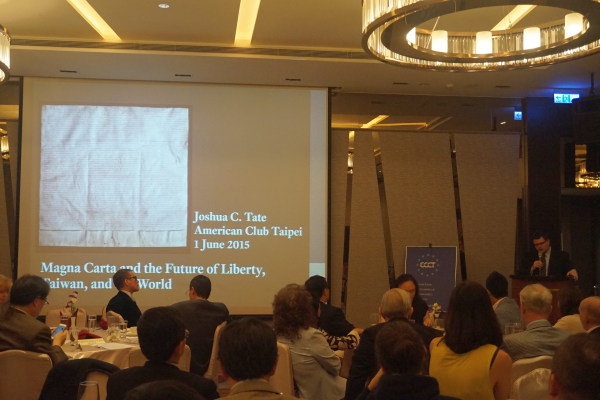The legacy of Magna Carta

The Magna Carta (The Great Charter) was an agreement signed by English King John and a council of powerful barons at Runnymede on the river Thames on 15 June 1215. The agreement had provisions that protected the rights of the church, protected barons from illegal arrest, land seizure or exile, provided access to swift justice, enshrined trial by jury and common law institutions and limited feudal payments to the crown.
While the agreement was soon breached by both sides and was revised several times subsequently, the core provisions of the Magna Carta were preserved and became the foundational ideals of English law and many of today's societies. The most notable and groundbreaking feature of the Magna Carta was that the sovereign promised in writing to respect, be subject to and accountable to the rule of law. While the king and subsequent sovereigns, states and other authorities the world over have frequently flaunted this promise, this was the first time that the promise had been put in writing and there were consequences for failure to comply (there is a clause in the Magna Carta which allows for the overthrow of the king if he fails to abide by the terms of the agreement).
Tate gave a short background to agreement. He noted that the Magna Carta was made possible because King John was in a weak position at the time. When the king assumed power in 1199, he inherited a powerful empire which included Ireland and parts of what is now modern-day France. However, he proved to be a poor military leader and subsequently lost parts of the empire. His weak position made him vulnerable and plots were brewing to overthrow him. There was also a financial motivation for the agreement: the king needed revenue after losing costly military battles in an effort to reclaim lost lands while the barons wanted limitations on their payments to the crown. In addition, there was a serious problem of inflation at the time.
The agreement was not just a concession to powerful barons (it limited feudal payments to the crown) but also involved other important stakeholders, notably the church and the city of London. This is reflected in the opening clause (Clause 1) of the Magna Carta, which guarantees the freedom and rights of the church and Clause 13, which does the same for the city of London. In addition, concessions were made to the king of Scotland and knights. Finally, clause 39 guarantees the liberty of the king's subjects while clause 40 deals with justice.
Prior to 1215, criminal cases in medieval England were resolved by "ordeals," which invoked God's judgment to decide guilt or innocence. Most of the ordeals required participation by priests to pronounce God's verdict. However, following the Magna Carta, this practice was discontinued. Later in the same year of the signing of the Magna Carta (from 11-30 November 2015), Pope Innocent III presided over the Fourth Lateran Council. Canon 18 of the Council provided that, in the future, priests would not be allowed to participate in the ordeals. This important move marked the end of the church's endorsement of medieval practices in favour of the rule of law and trial by jury.
While many of the specific clauses of Magna Carta have been superseded for various reasons, the fundamental principles and values are reflected in the British and US constitutions, the US Bill of Rights, the Universal Declaration of Human Rights, the European Convention on Human Rights and the International Covenant on Civil and Political Rights. For example, Clauses 39 and 40 of the Magna Carta form the basis of Fifth Amendment to US constitution, which guarantees the right to due process and a fair trial according to the law.
